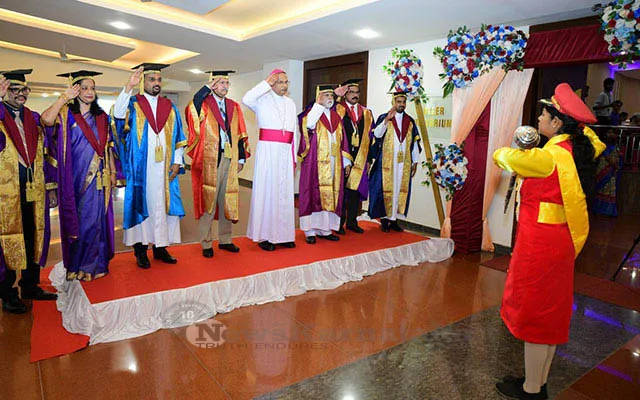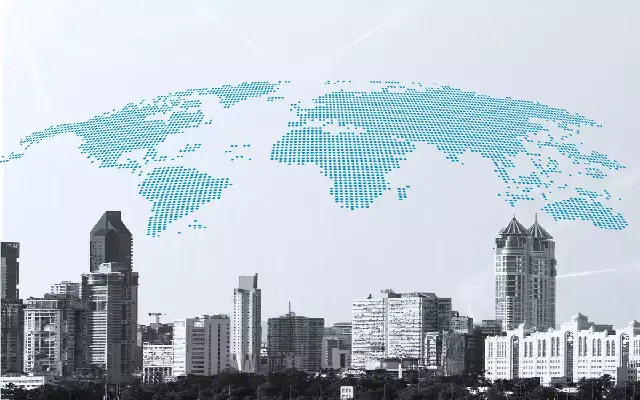
Bengaluru: Karnataka’s expert Committee set up to examine the need, modalities and extent of online classes submitted its report titled “Continuation of Learning in School Education of Karnataka”to the government yesterday. The committee has allowed both live as well as pre-recorded classes but has stipulated certain guidelines for their conduct. It also mandates parental supervision for students up to Class II and stipulates maximum screen time and frequency of classes. It stipulates the maximum screen time per session at 30 minutes with 15 minutes extra time for grades VI and upwards.
As regards frequency, school managements can conduct alternative-day classes for students up to class II, while five-days-a-week classes are allowed for class III and above. “Two days of the week should be strictly non-screen time,” the report states. The report also states that the recordings of the live sessions should be made accessible with adequate cyber protection in place to prevent misuse.
The report wants schools to blend different types of learning. “When technology is used, no child must be deprived access to education – if a child, for whatever reason is unable to access through technology, the school should provide ways in which the key learning objectives of that session/module is accessible to the child,” the report states. Interestingly it also seeks a direction to the Department of Primary and Secondary Education that it re-launch its television and radio broadcasts and curate “meaningful teaching and learning material to suit the current times”. And transparency should be the watchword the report says. The schools should put up its methodologies in the public domain and invite critiques to it and modify as required. It says the department should act on complaints by Parents / Students for violation of the guidelines once issued by the Government.
The committee said all innovative solutions must be used to keep the child’s interest at the centre and acknowledged that there was no “one size fits all’.
The Department of Education will now deliberate on these recommendations and take a call on all of them. It may be recalled that the State government had earlier banned online classes till class V — a move that was opposed by a section of parents and school managements. The Department had later permitted online classes temporarily, based on the norms stipulated by the Ministry of Human Resource Development, awaiting the expert committee’s report.
Centre to issues guidelines by July 15
Meanwhile, the Centre on Monday informed the Madras High Court that guidelines are being prepared for the conduct of online classes, a mode of teaching used widely during the COVID-19 lockdown, by schools and colleges. The guidelines would be notified by July 15. Justices M.M. Sundresh and R. Hemalatha recorded the submission made by Additional Solicitor General R. Shankaranarayanan and adjourned to July 20 a batch of public interest litigation petitions filed against the conduct of online classes without any regulations. A batch of petitions on the subject of Online classes is being heard by the Madras High Court. On June 23, a Division Bench comprising Justices R. Subbiah and Krishnan Ramasamy had called for a report from the Dean on the possible strain that could be caused to the eyes of children due to prolonged hours of time spent before computers and mobile phones. Petitioner’s counsel Loyola insisted the government should be directed to webcast pre-recorded classes rather than conducting them live. However, Justice Sundresh refused to pass any interim orders in the batch of cases and decided to await Centre’s guidelines. In its counter, MEIT had said extraordinary situations warranted extraordinary solutions and so online education had become a necessity during the lockdown.
The ministry in its submissions said that advancement of technology had provided an alternative mode of learning through virtual classrooms to enable students to continue their studies without any disruption. It also claimed to have put in place a robust administrative framework to regulate video conferencing platforms under the Information Technology (Intermediary Guidelines) Rules of 2011 and the Information Technology (Reasonable Security Practices and procedures and sensitive personal data or information) Rules of 2011. “The law requires that these video conferencing platforms appoint a grievance officer to whom any unlawful content or grievance can be reported. They are also required to remove any such unlawful content and also provide the information of any such uploader to the law enforcement agency as and when requested by them through a lawful order,” the counter read. The court was further told that the Indian Computer Emergency Response Team (CERT-In), a national nodal agency for cybersecurity incidents in the country, had been issuing various advisories from time to time for safe Internet use even with respect to children and that those advisories were available on https://www.certin.org.in/


















